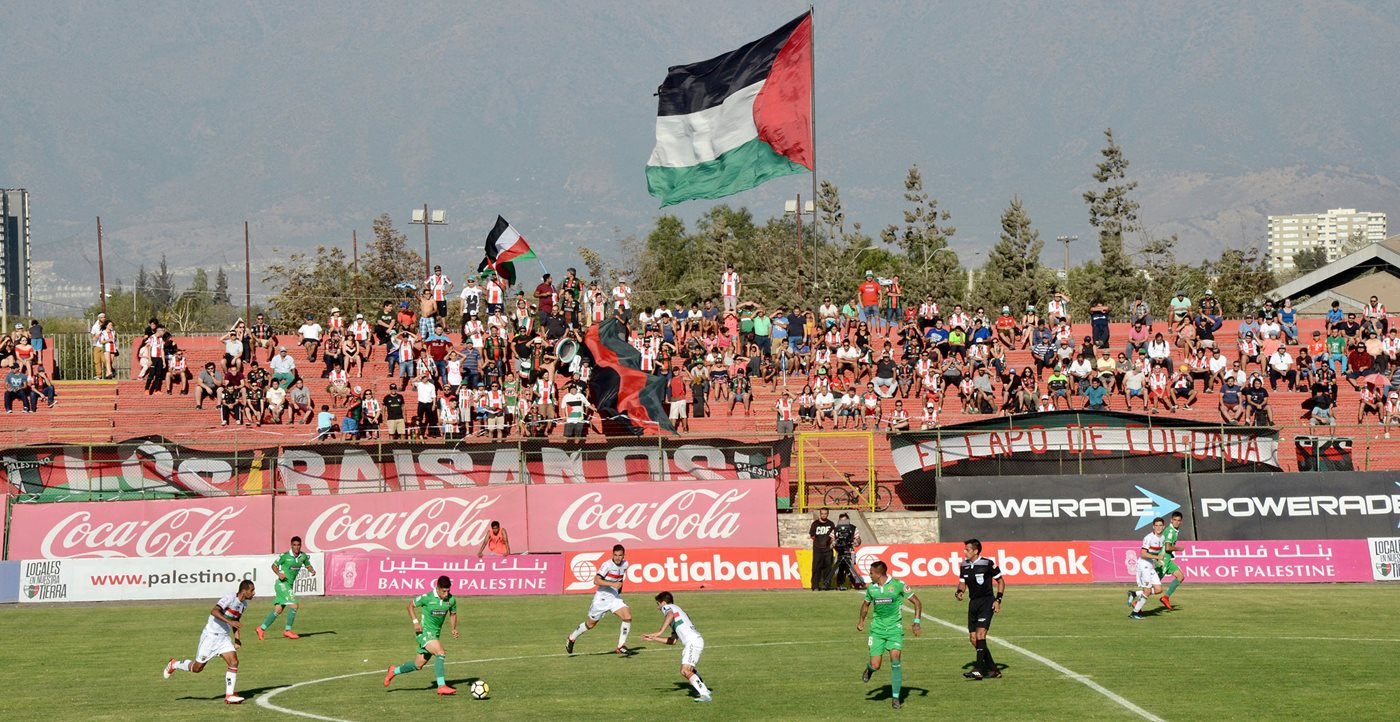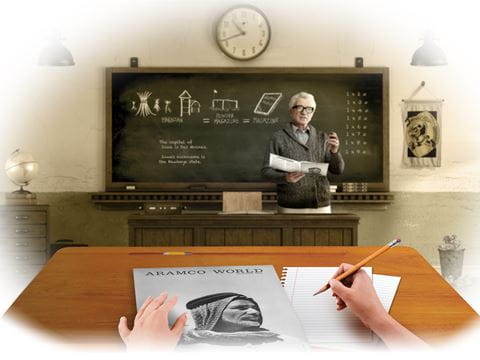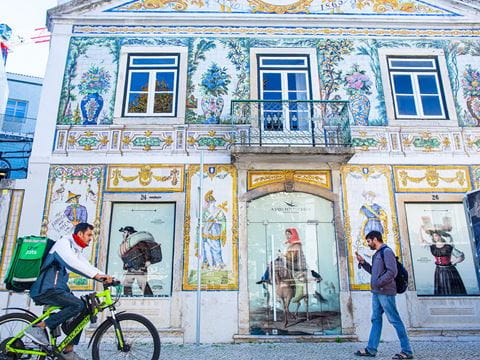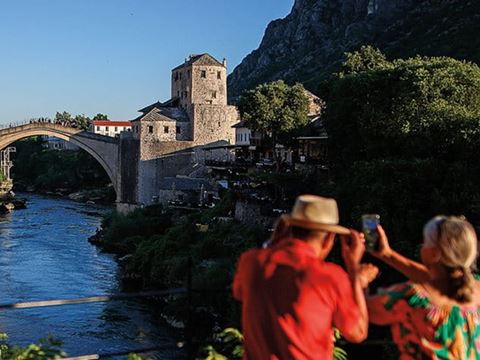
A Case Study of Migration and Immigration
Anthropology
History
Sports
Americas
"More than a Team" is on one level about a soccer team. On another level, however, it's a story about people leaving one country and moving to another.
For teachers: We encourage reproduction and adaptation of these ideas, freely and without further permission from AramcoWorld, by teachers at any level.
Common Core Standards met in this lesson: RI9-10.1/W.9-10.4/SL9-10.1 (see details below).
—The Editors
Do you have comments? I'd be pleased to hear from you at [email protected].
—Julie Weiss
More than a Team
- Identify the push and pull factors in human migration and apply them to waves of Palestinian migrants who settled in Chile.
- Identify challenges that Palestinian immigrants have faced in Chile and explain how they have adapted to them.
- Evaluate the impact that Palestinian immigration has had on Chile and on Palestine.
- Interview an immigrant or descendant of immigrants and apply what you have learned about Palestinian-Chilean migration to analyze his or her experiences.
About 300,000 of Chile's residents are descended from Palestinian immigrants. When did their forebears come to Chile, and why? Find the part of the article that describes the different times when waves of Palestinians moved to Chile. Use the information to complete the following chart. You'll find that not all the information is in the article, so you might have some blank places. But you can probably fill in some of them by inferring answers to the questions based on what you've read. Leave the right-hand column blank for the moment.
| Date | Why did they leave Palestine? | Why did they come to Chile? | Push or Pull? |
|---|---|---|---|
| Late 1800s | |||
| 1910s |
|||
| 1948 |
- "I don't want my buildings to be visible."
- "Buildings should not become monuments or luxury statements."
- "Architecture has been hijacked by the visual."
Arriving to a new country and staying there pose challenges, to say the least. Some of the challenges are identified in the article. Others you probably can imagine. Immigrants who succeed in their adopted homeland have to be very sturdy, resilient and hardworking. Complete the table below, listing on the left challenges that Palestinian immigrants have faced in Chile, and, on the right, how they have managed those challenges.
| Challenges | How Immigrants Managed Challenges |
|---|---|
How Have Palestinian Immigrants Benefited by Being In Chile? How Has Chile Benefited from Palestinian Immigration?
Despite the challenges that immigrants have faced, it's likely that they have found life in Chile at least acceptable and probably better enough than life in Palestine that they have stayed on. As you did with challenges, find the parts of the article that address how Palestinian immigrants benefited from moving to Chile. List the benefits in the left-hand column of the chart below.
Then think about how a country that welcomes immigrants benefits from their being there. Although the article doesn't directly address the subject, you can make inferences from what's in the article, as well as from what you know about immigration at other times in other places. In the right-hand column, list benefits to Chile and its people of having Palestinians become part of Chilean society.
| Benefits to Immigrants | Benefits to Chile |
|---|---|
And Finally … What About Soccer?
Now you've done some detailed thought to immigration. After all that, let's return to the title of the article, "More than a Team." How does soccer fit into all this analysis of immigration? Go back to the article to find out. Why have the Palestinos been so important to Palestinian immigrants and their descendants? Why have they been important to people in Palestine, too? Write a paragraph about what soccer is if it's more than a gamer, and what makes it that way.
Applying What You've Learned
Are things that are true about one immigrant group true for another? Identity someone—such as a family member, neighbor, or teacher—who either immigrated to your country, or who can tell you about his or her family's past experience immigrating. Of course, if you yourself immigrated, focus on your own experience! Generate a list of questions to ask the person. To come up with your questions, look back at the work you've done about "More than a Team" so that you can be sure that you ask questions that will yield the kind of information you're looking for. In addition, include any questions that you would like to know about but that the article and these activities have not addressed. Be sure to ask the person you interview if he or she would give you permission to share their story with your classmates. If the answer is yes, prepare a presentation about the experiences of the person you interviewed. Present your finished work to your classmates. If the answer is no, write about the interview without using the person's name and show the final work only to your teacher.
Common Core Standards met in this lesson:
RI9-10.1 Cite strong and thorough textual evidence to support analysis of what the text says explicitly as well as inferences drawn from the text.
W9-10.4 Produce clear and coherent writing in which the development, organization and style are appropriate to task, purpose and audience.
SL9-10.1 Initiate and participate effectively in a range of collaborative discussions (one-on-one, in groups, and teacher led) with diverse partners on grades 9–10 topics, texts and issues, building on others' ideas and expressing their own clearly and persuasively.
Other lessons

Teaching Empathy: Five Classroom Activities From AramcoWorld
For the Teacher's Desk
Help students build empathy and community for the academic year with AramcoWorld’s stories and Learning Center lessons.
Tracing the History and Geography of Portuguese Tilemaking
Geography
Architecture
Europe
Analyze how culture and technology have changed the ways tiles have been made in Portugal for over 500 years.
The Mostar Bridge Over Troubled Waters: A Case Study in Reconciliation.
History
Language Studies
Europe
Learn how the idioms and metaphors of a bridge destroyed during the Bosnian Civil War express the sentiment of a people.